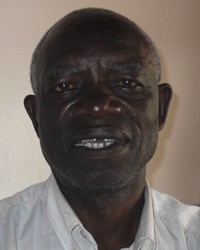Lambya, Rambia in Tanzania

Photo Source:
Anonymous
|
Send Joshua Project a map of this people group.
|
| People Name: | Lambya, Rambia |
| Country: | Tanzania |
| 10/40 Window: | No |
| Population: | 131,000 |
| World Population: | 237,000 |
| Primary Language: | Lambya |
| Primary Religion: | Christianity |
| Christian Adherents: | 97.00 % |
| Evangelicals: | 13.00 % |
| Scripture: | Complete Bible |
| Ministry Resources: | Yes |
| Jesus Film: | Yes |
| Audio Recordings: | Yes |
| People Cluster: | Bantu, Central-Tanzania |
| Affinity Bloc: | Sub-Saharan Peoples |
| Progress Level: |
|
Introduction / History
Like other Bantu peoples, the Lambyas originated in the Congo Basin. Today they live in Tanzania, Malawi, and Zambia. Lambya is also the name of their language. They established the Ulambya Kingdom. The kingdom historically covered fertile valleys, supplying their food source.
What Are Their Lives Like?
Most Lambyas are farmers who grow peanuts, corn, and cassava. They have farm animals for their meat, and they fish.
Death rituals are important. As soon as someone dies, women begin to wail, and someone sends messages to the chief and family members. They use a drum to tell the community that there has been a death. Death rituals can last a month.
At one time, a Lambya man could have multiple wives, but this is no longer common today. There is a bride price, usually paid in livestock. Courtship rituals include family negotiations and gifts. Wedding practices include music, dancing, and feasting.
What Are Their Beliefs?
The Lambyas have a strong Christian church, although they still practice traditional religion. They are well equipped to share the gospel with others.
What Are Their Needs?
The Lambyas have limited markets for the goods they sell. Educational and medical needs are not adequately met.
Prayer Points
Pray for the Holy Spirit to move powerfully in Lambya families and churches.
Pray that they will soon have biblically based music, dance, and drama to spread the gospel.
Pray for Lambya Christians to draw closer to Jesus Christ and become his ambassadors to many.